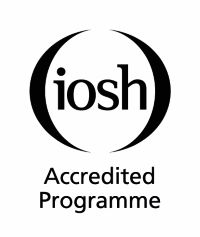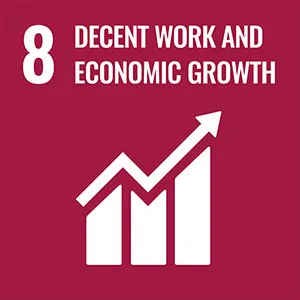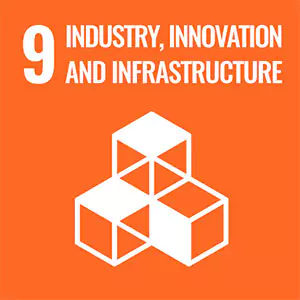MSc Technology, Work and Health
In this programme, you will learn how to plan, design and analyse work environments from a sustainability and performance perspective. Ergonomics and Work Environment management enable functional and well-designed work systems, organisations and environments. With skills in applying occupational safety and health management, our graduates make vital contributions to a healthy and productive workforce. The programme is IOSH accredited for delivering the highest standards in in occupational safety, health, and technology education.


Technology, Work and Health at KTH
This master's programme provides a deeper understanding of the interplay between humans, technology and organisation, from the perspectives of sustainable work and organisational performance. You will gain knowledge and proficiency in proactive occupational safety and health (OSH) management, as well as in planning, designing and analysing work environments. You will acquire advanced theoretical and applied knowledge of physical, cognitive and organisational ergonomics, which is needed to address issues of worker health and work sustainability in all sectors of society. Programme content can be used to develop organisations and processes, focusing on a more sustainable working life.
The education in the programme is based on blended learning, with both on-campus and distance sessions. Between on-campus meetings, you will study independently or in groups with course projects, as well as join scheduled digital or hybrid learning activities. Students also take initiative to form links with companies and work sites in the public and private sectors to engage with real-life working conditions.
During the first year, students have the opportunity to specialise in either Work Environment Engineering or Human Factors and Ergonomics.
Work Environment Engineering
The Work Environment Engineering coursework includes both theory and practice. It allows graduates to identify, measure and evaluate physical, chemical, and biological risks in the workplace. It also allows them to develop, implement, and evaluate control measures that make the workplace safer. Furthermore, this specialisation includes coursework in systematic work environment management, leadership, and change management. This enables graduates to communicate risks and motivate improvements when proposing workplace solutions.
After completing your studies, you will have the relevant knowledge and proficiency to work as a Work Environment Engineer (formerly called Safety Engineer). To learn more about Work Environment Engineering as a job role in Sweden, please see the job description listed by SACO, the Swedish Confederation of Professional Associations (In Swedish) .
Human Factors and Ergonomics
The Human Factors and Ergonomics specialisation focuses on identifying, measuring, and evaluating musculoskeletal and cognitive loading. You will learn to apply theory, principles, data and methods to design work environments and systems that optimise human well-being and overall system performance. In addition to systematic work environment management, leadership, and change management, this specialisation includes practical skills in planning and designing work environments and intervention evaluation.
After completing your studies, you will have relevant knowledge and proficiency to work as a Human Factors Specialist or Ergonomist. To learn more about Ergonomics and Human Factors professions, please see the professional scope described by IEA, the International Ergonomics Association .
This is a two-year programme (120 ECTS credits) in English. Graduates are awarded the degree of Master of Science. The programme is given at KTH Campus and KTH Flemingsberg in Stockholm by the School of Engineering Sciences in Chemistry, Biotechnology and Health (at KTH).
In the final semester, you carry out a degree project in your area of focus. The project may be done individually or in groups of two.
The programme is accredited by the Institution of Occupational Safety and Health (IOSH) , a chartered body for health and safety professionals with over 50,000 members in over 130 countries. They have been active as a global not-for-profit organisation since 1945 to promote a simple vision: “a safe and healthy world of work for everyone”. Accreditation by IOSH signifies that the programme meets the IOSH internationally recognised standards for professional competence in occupational safety and health education.
Courses in the programme
The courses in the programme cover topics such as occupational safety and health; physical, cognitive and organisational ergonomics; musculoskeletal, physical, chemical, and biological hazards in the workplace; human factors; change management; risk assessments; product and production development; design for safe and sustainable work; leadership and sustainable work.
Courses in the master's programme in Technology, Work and Health
Future and career
Graduates from an IOSH-accredited programme, such as this, are considered to have a strong academic foundation in workplace health and safety. This accreditation supports their pathway to becoming professionally recognized health and safety practitioners, equipped to lead in technology-driven work environments. As a programme graduate, you will have broad career opportunities and good employment prospects. Saco, the Swedish Confederation of Professional Associations, reports a high demand for work environment engineers and low competition for job postings, even for new graduates. Employers of Work Environment Engineers and Human Factors Specialists can be found nationally and globally in the public and private sectors. According to Saco, the Swedish Work Environment Authority aims to have 300 inspectors employed by 2030 and is currently recruiting.
A master's degree in Technology, Work and Health gives you:
- the capacity to actively influence and manage change and development projects within the field of technical work environments.
- knowledge of and competence in risk assessment methods, safety strategies and project management within production development.
- the ability to make a difference in the health and economic productivity of people, companies, and society.
- entrée into a dynamic, high-demand career.
The programme supports professional careers as specialists within public authorities, inspectorates, or private OSH organisations or consultancies. Graduates are well-prepared to work with investigations, risk assessments, change management, and planning and designing work environments and organisations. Common job titles among graduates are work environment engineer, human factors specialist, ergonomist, labour inspector, occupational safety and health consultant, and project manager. Another possible path is to pursue a research career through PhD studies at KTH or other universities worldwide.
Sustainable development
Graduates from KTH have the knowledge and tools for moving society in a more sustainable direction, as sustainable development is an integral part of all programmes. The three key sustainable development goals addressed by the master's programme in Technology, Work and Health are:



The programme is strongly connected to SDG #8: Decent work and economic growth, as work is a fundamental part of people's lives and a key factor in health. It also aligns with SDG #3: Good health and well-being, since work-related injuries and illnesses are prevalent worldwide. Students in this programme develop a comprehensive understanding of workers' health across all genders, ages, and socioeconomic backgrounds, including blue- and white-collar workers. Additionally, the programme supports SDG #9: Industry, innovation, and infrastructure by illustrating how to create sustainable and competitive work systems that minimise physical, chemical, biological, and psychosocial risks.
Faculty and research
The programme faculty comprises teachers from the Division of Ergonomics, all holding PhDs in relevant fields. Additionally, workplace environment specialists from outside the university contribute to teaching with extensive professional experience in applying the study topics.
The master's programme is closely related to the division's research projects, and the majority of the student projects include data collection from real workplaces. The faculty consists of several well-known researchers within the field of ergonomics, work environment risk assessments, and organisation management. The senior researchers are:






